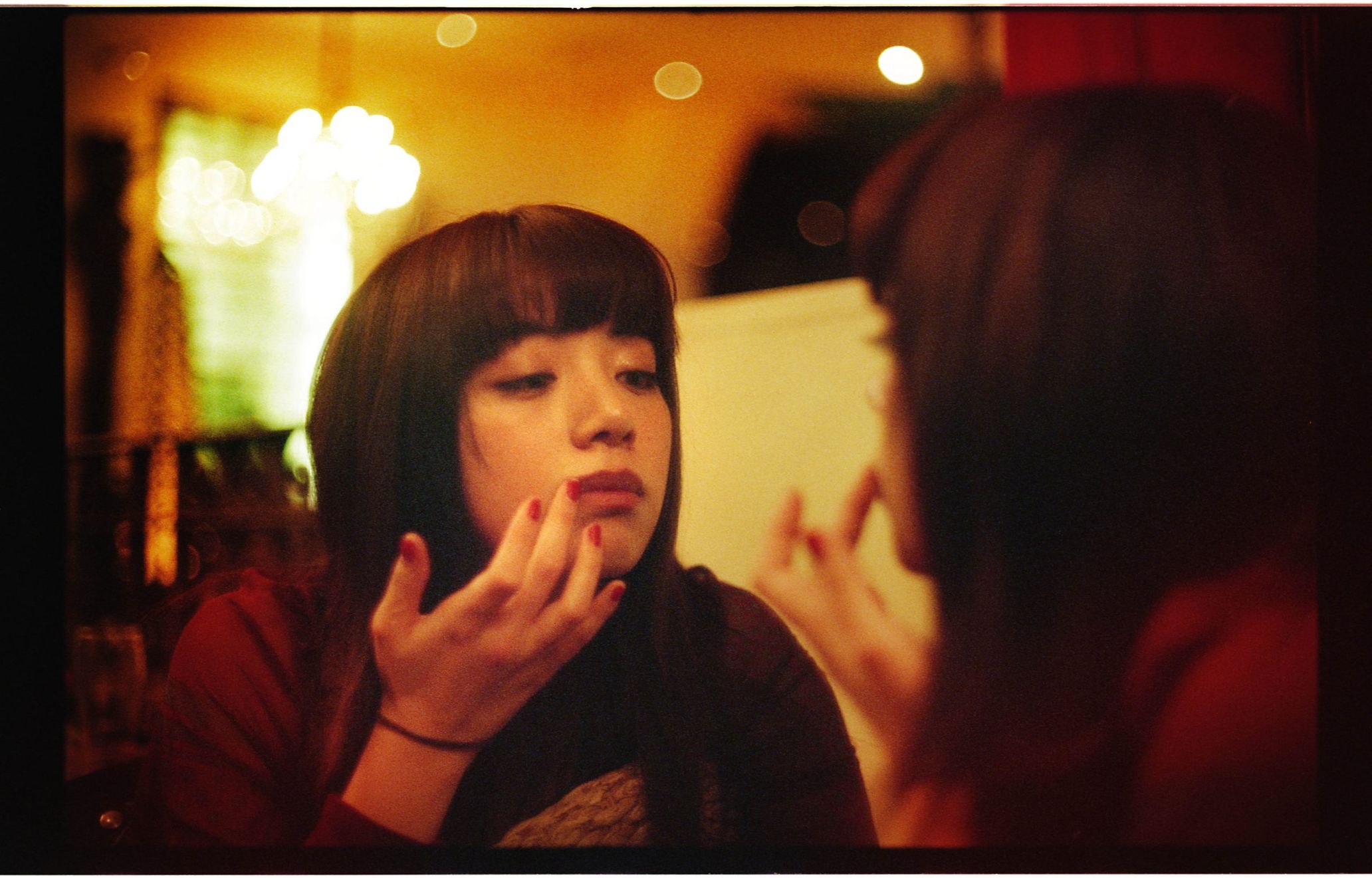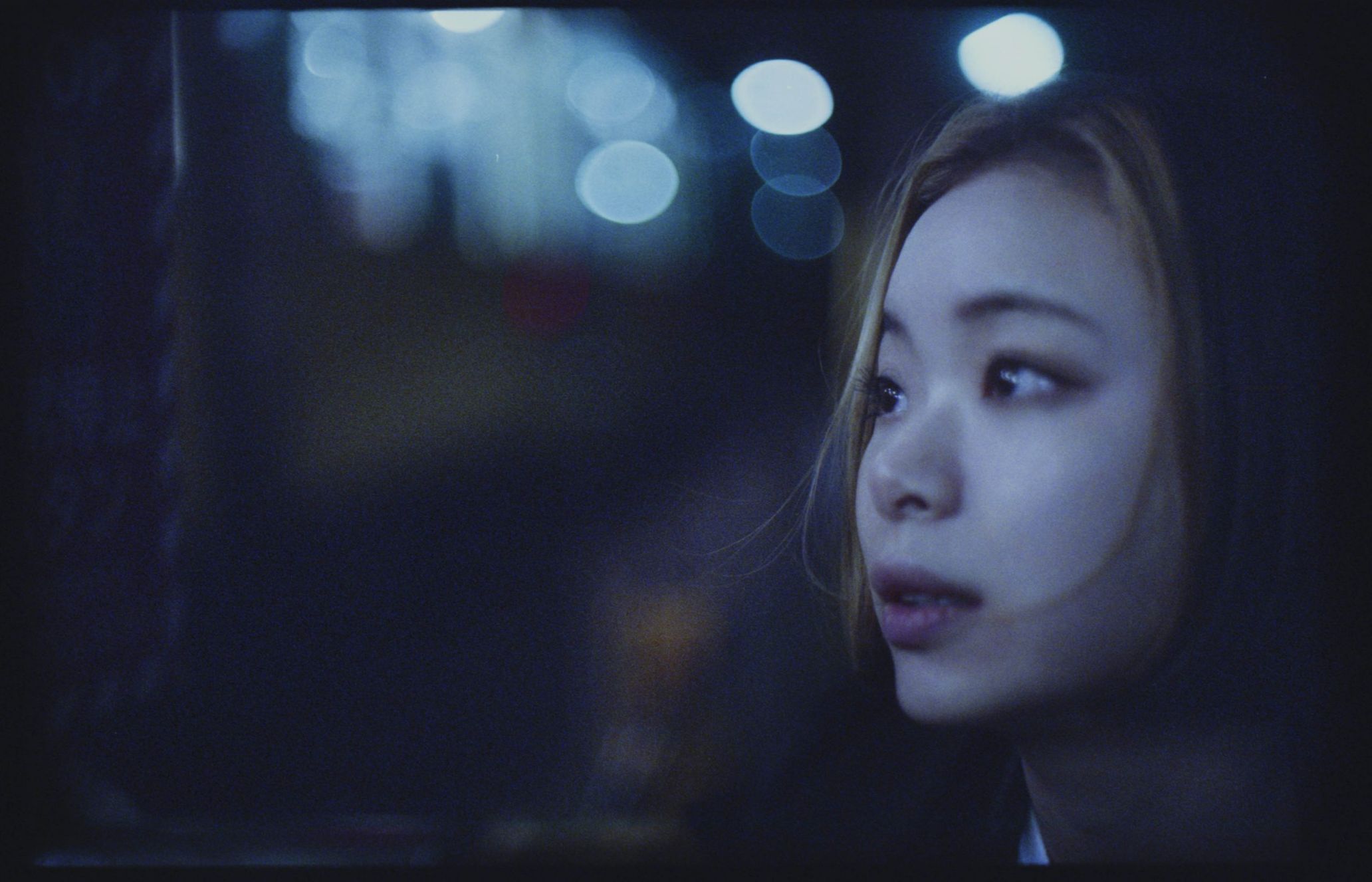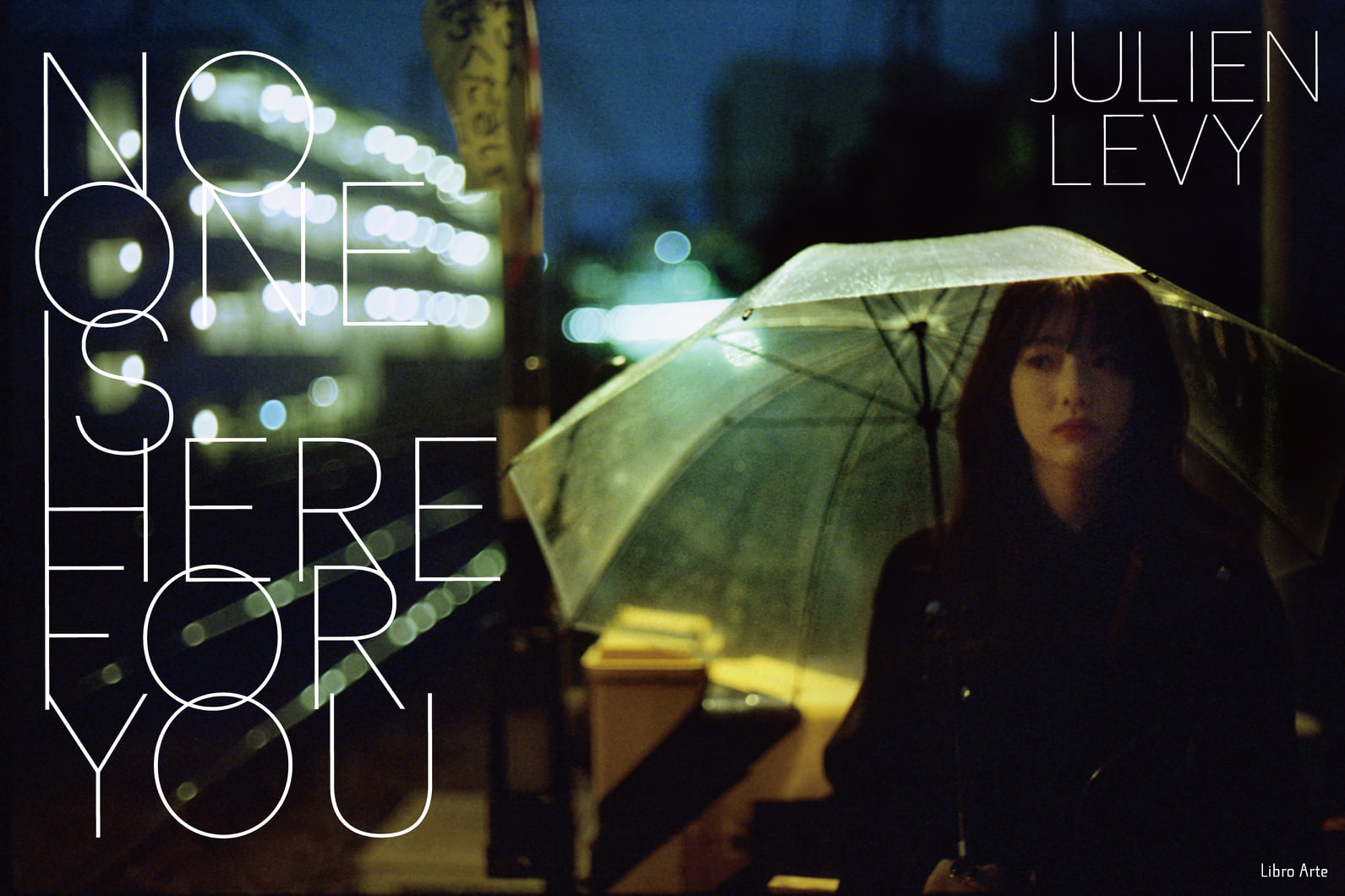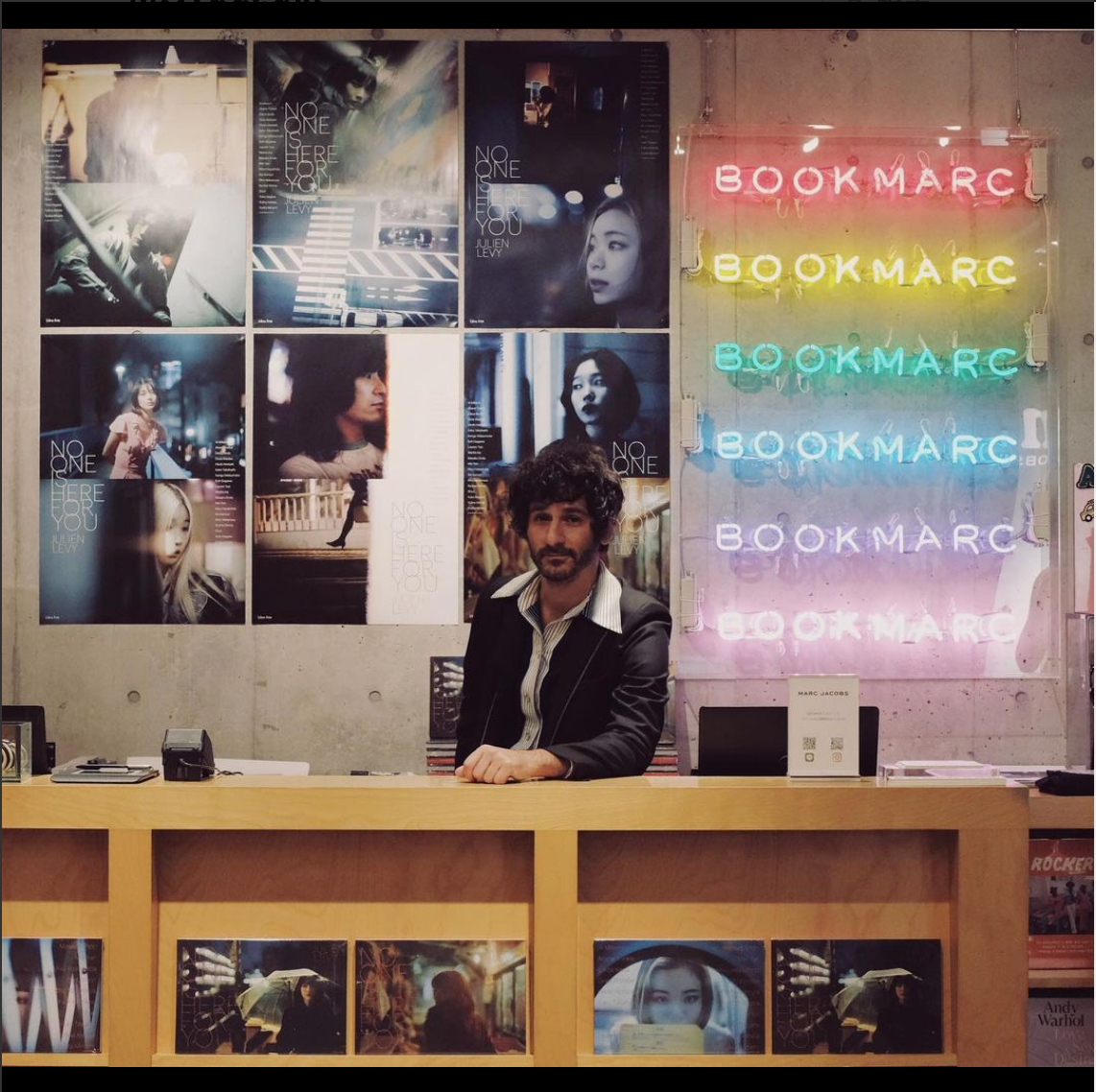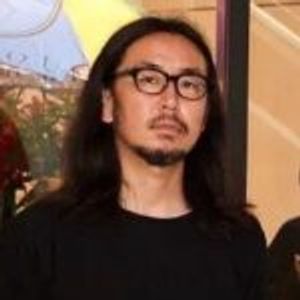Julien Levy is a filmmaker and photographer who works on film photography with a cinematic atmosphere and narrative. In addition to photography and film, his work spans a wide range of genres including literature and cinema. His work is based on the romantic sensibilities he nurtured through his past experiences as a member of a punk band and is characterized by provocative yet philosophical photographs and videos, accompanied by poetic and beautiful texts.
In his new photo book, “No One is Here For You,” he shot young creators and artists living in the Tokyo of 2020 under the COVID-19 pandemic. Through their portraits, he records the loneliness, melancholy, and delicate sensibilities that lurk in the quiet nights of the metropolis. A diverse lineup of subjects ranging from manga artists and actors, to models and musicians include Ai Mikami, Akane Torikai, Elaiza Ikeda, Gota Watanabe, Hiroki Horizaki, Yoshiko Takahashi, Kengo Matsumoto, Ko Degawa, Lauren Tsai and Marika Kai.
The photos and texts documenting the feeling of “loneliness” and “melancholy” experienced by people all over the world during the COVID-19 pandemic are easy to relate with. The interview illuminates how Julian looks at “Tokyo” today.
“I want to show these sceneries to people abroad who can’t really imagine what it’s like in Tokyo”
—Your work ranges from photography and video, to books, literature and cinema. How did you develop such a style?
Julien Levy (Julien): I see myself as a storyteller. So which medium I use to tell the story isn’t that important. What truly happens is that I have something to say, and I need to say it, at all costs. It really is a need. I have all these stories in my head, all these theories, characters, etc, and I need to get them out of my system. Of course I mainly write and direct movies, but sometimes literature or photography fits better. I think everyone should do a bunch of different things. It doesn’t matter if it succeeds or fails. We’re all complex creatures, forever unsatisfied, forever searching for something new to do. It’s a good thing.
—Your latest work, “No One is Here For You,” is created under the theme of the coronavirus catastrophe in Tokyo. What motivated you to create this work at this time?
Julien: As soon as the pandemic started, it became almost impossible to direct independent movies like the ones I do. All the producers I work with put my movies on hold in April 2020, and it took a very, very long time to restart. At first I just stayed home and wrote. But then I realized I really missed working with images…and so did my actor and model friends. We were all very free, very available, suddenly! So I started taking pictures of them. Then Libro Arte offered to make a book out of these images…
Documenting Tokyo during the COVID-19 pandemic was also part of it. This empty Tokyo, these artists wandering through deserted avenues…it might be the only time we can witness that. I especially wanted to show these sceneries to people abroad who can’t really imagine what it’s like in Tokyo.
—As was the case with “Everyday is Doomsday”, I feel that your photographs are visual images with a storyline, using your experience as a filmmaker and your style. What kind of story did you come up with for this work?
Julien: Photography, at least to me, is not enough. It needs to serve as narrative to be powerful. Everyday Is Doomsday was a mix of photography and short stories, like a diary. This time there is just an introduction text, and then it’s only the pictures that shape up the narrative. I’ve personally arranged the order in which they appear in the book, like I would have done with scenes for a movie. Actually, it’s a book that should be read as if it was made of screenshots from a movie.
—What were some of the challenges you faced in creating the story?
Julien: There were a lot of challenges! First, my budget was tiny. I did almost everything by myself. Also, I wanted to shoot in a very natural way -no make-up artist, no assistant. And all in analog! It made the shootings very beautiful, very pure, but also quite difficult. I remember some winter nights when I was walking alone in empty Tokyo, shooting pictures in the cold and I was thinking – what the hell am I doing?
And in general, I felt very lonely during the process. I couldn’t go back to my country, I couldn’t meet my work partners, show them the pictures and select them together, I couldn’t shoot at my favorite spots because they were closed, etc. Everything was made remotely, even the color grading! It was definitely a pandemic book. Very tough. But what an experience!
— How did you cast the subjects for this project?
Julien: Some are my good friends (like Lauren Tsai and Ryohei Shima), some are people I made films with in the past, some are people I was in touch with but never had the chance to shoot. There was no criteria, just some words exchanged, like, hey, do you want to be in my book? It’s about loneliness. And the first people who answered yeah, let’s do it ended up in the book. Simple!
“I wish I’d meet more passionate people in the Japanese movie world who are not afraid to break the rules and make great cinema.”
–You are currently based in Tokyo. What kind of image do you have of Tokyo? Why did you move your base to Tokyo ?
Julien: I moved here because a few years ago when I was living in NYC, I came to Tokyo several times for my films and I slowly fell in love with the city. Then I just decided to be based here for a while… I love Tokyo. Compared to Paris, where I was born, almost everything is different. Not better or worse, just different. Tokyo and its inhabitants are very inspiring. Surprising. And very kind, too. My only struggle is that, compared to Paris or NYC, it’s difficult to build independent, powerful movies. I still work a lot with French and American producers, but I wish I’d meet more passionate people in the Japanese movie world who are not afraid to break the rules and make great cinema. It’s my mission here! The Japanese audience deserves better movies.
–You have also worked on advertisements for luxury brands such as “CHANEL” and “Miu Miu”. Could you tell me about your approach and fascination with commercial work?
Julien: Somehow luxury brands seem to like my films, I don’t know why. Haha. Anyway it’s flattering. But yeah, I work with brands who offer interesting projects. I actually like making movies for fashion brands, because the rules are completely different than with my own films, so it’s quite exciting. I really have no problem going from pure art to fashion films. They’re just different things, and yet I can create my own style and my own world in both cases.
–-How has your career as a filmmaker influenced your photography?
Julien: I’m not sure, really. I guess I just use my experience as a filmmaker regarding colors, movement, and character building, and inject all of it into my photography. People often tell me my photography looks a lot like my films, so I guess it works!
–What kind of Japanese culture are you interested in lately?
Julien: I’m involved in the rock scene because I’ve been directing a lot of music videos for Japanese bands, and I’m very invested in it. That’s what I know best here. There are some amazing bands in Japan’s underground and indie scene. I also read a lot of Japanese novels.
And Japanese whiskey is definitely helping when I write at night.
–Please tell me about your future prospect.
Julien: Making more movies, writing more books, and building my own world because reality is not so great now.
Julien Levy
He was born in Paris and is currently based in Tokyo, Japan. His work spans photography, film, literature, and cinema. In 2014, he held a solo exhibition “Beauty is you / Chaos is me” at Chanel Nexus Hall in Ginza, and in 2016, he published a photo book “Everyday is Doomsday” (Damiani). His new solo exhibition “No One is Here For You” featuring young and sensitive creators and artists living in “Tokyo” under the coronavirus catastrophe is being held at Bookmarc until December 1.
■No One is Here For You
Period: until December 1
Venue: Bookmarc
Location: 4-26-14 Jingumae, Shibuya-ku, Tokyo
Hours: 11:00 – 20:00
Admission: Free
Translation Shinichiro Sato(TOKION)

